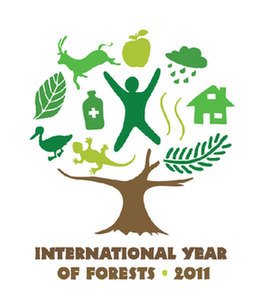International Year of Forests
2011 is the International Year of Forests (IYF) and celebrations will officially be launched in Feburary during the 9th Session of the United Nations Forum on Forests in New York.

This Year, which comes in the wake of the International Year of Biodiversity, represents an opportunity for evolving our work on sustainable forestry to a higher plain.
Forests are an issue with essential links to livelihoods, addressing climate change and other environmental challenges; the UN's Millennium Development Goals and sustainable development as a whole.
This is in part why forests are a key sector within UNEP's Green Economy work - a landmark report which will be launched at the upcoming Governing Council/Global Ministerial Environment Forum (GC/GMEF) - as we work to strengthen all three pillars of sustainable development on the Road to Rio+20 taking place in May next year.
Forests represent many things to many people including spiritual, aesthetic and cultural dimensions that are, in many ways, priceless. But they are also cornerstones of our economies, whose real value has all too often been invisible in national accounts of profit and loss.
This mismatch between reality and perception emerged with full force in The Economics of Ecosystems and Biodiversity (TEEB) work.
It estimates that deforestation and forest degradation are likely costing the global economy between US$2.5 and US$4.5 trillion a year, more than the losses of the recent and ongoing financial crisis.
 0
0 






